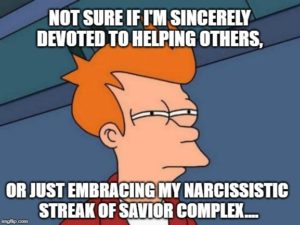
Comedian Shehzad Ghias Shaikh has recently started a podcast series on YouTube called The Pakistan Experience (TPE). The first episode features Pakistan’s first drag standup comedian, Muhammad Moiz. For those of you who do not know, drag is someone who dresses as the opposing gender and performs as an entertainer especially to caricature stereotypically exaggerated characters, both male and female.

The podcast is a very nuanced and sensitized discussion between Moiz and Shehzad on several key issues from drag in Pakistan, the transgender community in Pakistan, the Kami sid rape controversy and the me too movement in Pakistan.
The first thing to look into is their discussion regarding social movements and their perception by the larger community. Although their discussion focuses on the trans rights movement in Pakistan and how the movement was marred by opinions of different activists, it highlights a very inherent belief in the community regarding social movements that all collaborating parties are absolutely on the same page – a dilemma that has also plagued the members supporting the Aurat March. When social movements emerge, there are bound to be varying opinions and that will affect the movement and its perception in the eyes of the people. While there is no control on how people project their ideas (unless they are harmful), what the audience can at least try to understand are the nuances of the situation. For instance, the diverging views related to Aurat March were:
- Placards are supposed to be quirky and also represent truths indigenous to a particular person.
- Placards should be culturally sensitive and talk about larger issues impending the female population of Pakistan.
Now we can all debate which one is right and how each opinion impacts the movement but we cannot negate the mere presence of these opinions. The take away from the example is that people need to be sensitive about varying ideas and not let that take away the purpose of any social movement at large.

The next idea they discuss is how crimes are perpetrated by enablers and how the power structure within our community allows the space for crimes to be committed within the community.
We all often find ourselves criticizing the power structure or just the general policy making of the country when it comes to any human rights issues or the provision of better facilities. When it comes to the advancement of the social fabric of the country, we often find liberal and progressive circles at the forefront asking for better accountability and provision of rights. However, the entire debate about being an activist and standing up for the rights of other people falls short, when someone is unable to point out the fault in one of their own. That defies the entire purpose of movements we initiate and the laws we so wish to be implemented. In the case of Kami Sid, Qasim Iqbal was allegedly an enabler because he was immune to the allegations against Kami due to his personal liking of her. Similar is the case of Fasih Zaka, who made rape jokes and was supported by the liberal fraternity on Twitter as being one of their own.
What we can gather from this discussion is that we need to separate ourselves from the controversy and look at the situation with a very sensitized lens and not enable those around us because such maneuvers take us way back and make the movements redundant and empty of the essence we associate with them. More often it becomes about optics and we need to separate ourselves from such tactics and also be on the lookout for people with a savior complex. While it is great that people want to participate in emancipating a group or a community, people need to realize whether or not their efforts are detrimental to the movement or work at large. If people are aware of these circumstances, perhaps then we can move towards accountability in its true essence and decipher bodies responsible for them separate from people’s own personal interests.

The last bit of the podcast then moves on to me too movement, power dynamics and the impact on social media.
Shehzad and Moiz comment on how people cannot generally perceive the power dynamics involved when it comes to cases of sexual harassment or assault. We have countless examples of this. The more recent one is when this woman came out against Ukhano and people could not grasp how power was in play in the events that unfolded. Similar was the case of Junaid Akram where there are reports of him blackmailing the women who came forward by either threatening a lawsuit or threatening to leak their images. When cases are discussed on social media, the masses generally tend to become more polarized because not many people use the internet to find out new ideas rather confirm their previous biases. And Shehzad rightly points out that we have seen this in the form of aggression and hatred against those who come out with their stories. This again takes us back to the need of sensitizing ourselves to the dynamics of those oppressed because social media certainly has provided them a platform which can only take us to greater accountability if the lens with which we look at things is unbiased and does not protect those we call our own.
For the full podcast, click here. And let us know what you think of the debate in the comments below!





